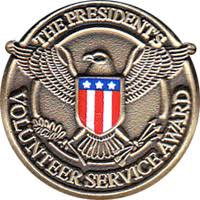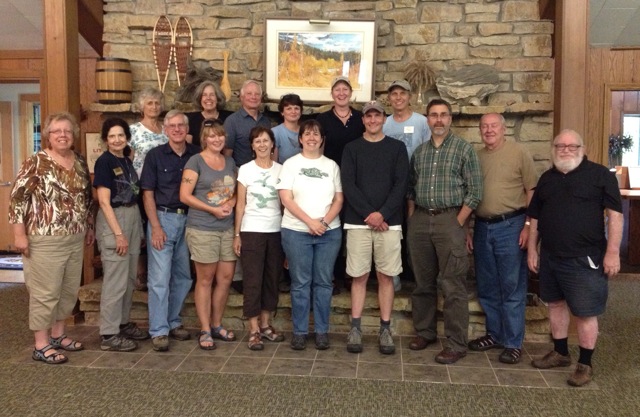About Minnesota Master Naturalist
What is a Minnesota Master Naturalist?
Watch this 5 minute video for a great overview on the program and what to expect. Video created by Minnesota Master Naturalist Volunteer, Galen Erickson.
Becoming a Minnesota Master Naturalist
Who can be a Minnesota Master Naturalist Volunteer?
Any adult, 18+, who is curious and enjoys learning about the natural world shares that knowledge with others and supports conservation. If you enjoy hiking, bird watching, following tracks, or identifying wildflowers, you'll love being a Minnesota Master Naturalist Volunteer. Minnesota Master Naturalist Volunteers are a motivated group of fun and interesting people: teachers, retired professionals, nature guides, hunters, eco-tour operators, farmers, and...YOU!
The Minnesota Master Naturalist Volunteer Training Courses consist of 40 hours of in-classroom training. You will need to choose one biome and complete the 40-hour coursework to become a volunteer. The classroom training includes a variety of teaching methods—lectures, PowerPoints, hands-on activities, videos, and field trips that provide the participants with information on Minnesota's natural history. The course is designed to be a general overview of Minnesota's three biomes. Each class series focuses on one of the three biomes: Big Woods, Big Rivers; Prairies and Potholes; and North Woods, Great Lakes.
~Volunteer sharing her Love of Nature
Attendance Policy
Participants must complete 40 full hours of training to become certified Minnesota Master Naturalist Volunteers. You will be certified in the biome that you take, you need only take one biome to be considered a Minnesota Master Naturalist Volunteer.
Volunteer Service
Following the completion of the training course, Minnesota Master Naturalist Volunteers will be expected to complete 40 hours of volunteer service and 8 hours of advanced training per year to be considered an active Minnesota Master Naturalist. Any time spent on the Capstone Project and any volunteer service hours completed after graduating from the training course may be counted towards the 40 hours. There are four basic areas of service:
- Stewardship Projects—these projects would involve natural resource management activities such as invasive species removal or restoration projects.
- Education/Interpretive Projects—these projects would be public presentations of natural resource information, educational materials development, or leading hikes.
- Citizen Science Projects—these projects would focus on volunteers gathering data and returning it to researchers to support the research projects. Examples would include Monarch larval monitoring, plant or animal counts, or water quality monitoring.
- Program Support—these projects include working in a store or office of the Minnesota Master Naturalist or sponsor or serving as a local chapter organizer.
Advanced Training
Completing at least eight hours of advanced training each year is required to be considered an active Minnesota Master Naturalist volunteer. All advanced training must relate to Minnesota's natural/environmental cultural history or the Minnesota Master Naturalist service areas and be a formally offered training. Most advanced training will take place in Minnesota and include an outdoor component. The Minnesota Master Naturalist program offers several opportunities to complete your advanced training, including our annual conference and other sponsored advanced trainings.
If you pursue advanced training opportunities outside of those offered by the Minnesota Master Naturalist program, that's great! All we ask is that you use your best judgement about whether it is "advanced" for you and expands on your knowledge of Minnesota's plants, animals, or our service areas. Some examples of what might count as an advanced training include:
- Environmental education trainings like Project WET, WILD, or Learning Tree workshops
- Citizen science training like water quality monitoring training, frog & toad survey training, etc.
- A class on plant or animal identification, Minnesota geology, etc., as long as the topic is new to you and/or the class adds to your knowledge
- Volunteer orientation for a nature center
- A class or workshop on forest stewardship
- Online webinars on appropriate topics
- Lectures about environmental sustainability or other relevant environmental topics
Some examples of what does not count as advanced training include:
- Watching television, documentaries, and online videos - even if the content is related to Minnesota's nature
- Going on a hike with family
- Birding, identifying trees, etc. with friends
- Reading a book about Minnesota nature (unless it is part of a book club associated with a Minnesota Master Naturalist chapter)
Awards
You will receive an award pin for every year that you volunteer 40 hours of service or more. These pins are custom designed to thank you for your service each year. Pins are currently designed by Minnesota Master Naturalist volunteers! We love highlighting their talents.

When you have recorded the appropriate amount of hours onto the website, you will be qualified to receive the following accumulative pins.
When you complete Invasive blitz Training.
Volunteers reporting 500 or more service hours in a SINGLE YEAR will receive the Presidential Volunteer Service Award.

How much do the courses cost?
Each course costs $295.00 and includes course manuals and supplies.
Scholarships Available
If the $295.00 fee is a hardship, fill out the Minnesota Master Naturalist Scholarship Form and send it to us.
Cancellation Policy
If we cancel a course, a full refund will be issued. If the registrant cancels, the following policies apply.
Advanced Training: Cancellation requests received more than two weeks before the start of class are refunded minus a $10.00 processing fee. For cancellation requests received less than two weeks before the start of class, no refunds will be given.
Biome Courses: Cancellation requests received more than two weeks before the start of class are refunded minus a $20.00 processing fee. Cancellation requests received less than two weeks before the start of class are refunded minus $50.00. A refund will not be issued after the course has started.
Gathering Partners Conference: Cancellation requests received more than two weeks before the start of the conference are refunded minus a $20.00 processing fee. Cancellation requests received less than two weeks before the conference are refunded minus $50.00. Refunds for lodging are subject to hotel policies.
If you need to cancel your registration, contact Julie Larson, larso143@umn.edu
National Public Lands Day
National Public Lands is a national day of service that the Minnesota Master Naturalist Program participates in. It is held annually on the third Saturday in September. MNat coordinates multiple sites across the state. It is our largest single day of service each year. We encourage all MNat volunteers to participate. Family members and friends are welcome to join us that day. Registration is required.
National Public Lands Day 2018

Annual Reports
Special Thanks
Minnesota Master Naturalist Program wishes to thank all those who have contributed in making our program possible!
- National Science Foundation: Minnesota Master Naturalist is supported, in part, by grant ESI-0540358 from the National Science Foundation.
- Minnesota Department of Natural Resources: Providing educational and financial support.
- Bell Museum of Natural History: Providing educational support.
- University Of Minnesota: Providing educational and financial support.
- Florida Master Naturalist: We thank the University of Florida-IFAS- Florida Master Naturalist Program (www.MasterNaturalist.org) for their contributions to the development of the Minnesota Master Naturalist Program.
- Missouri Master Naturalist
- Texas Master Naturalist Program
